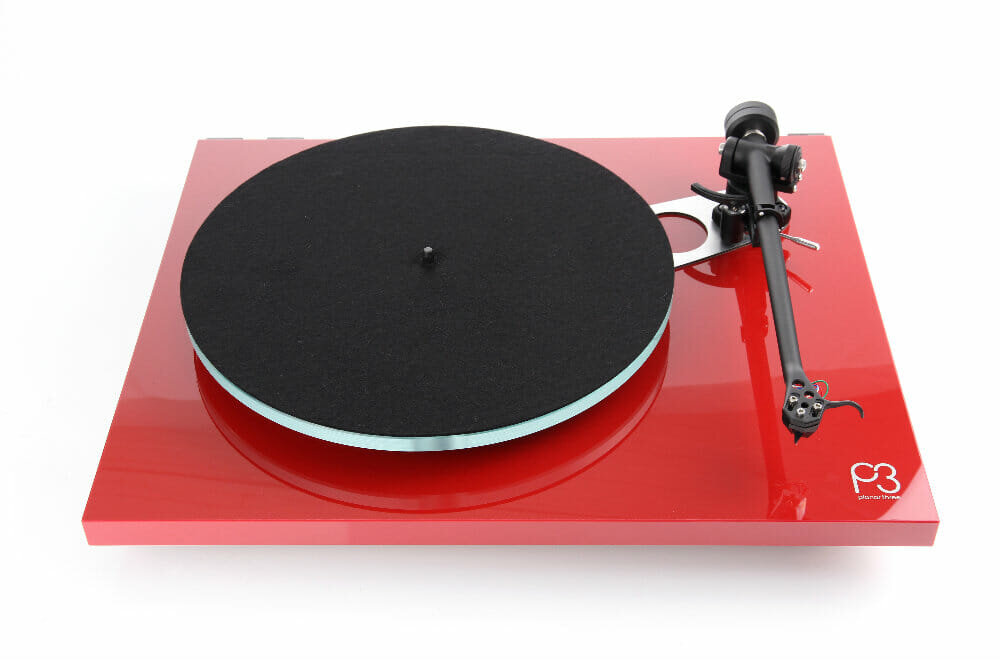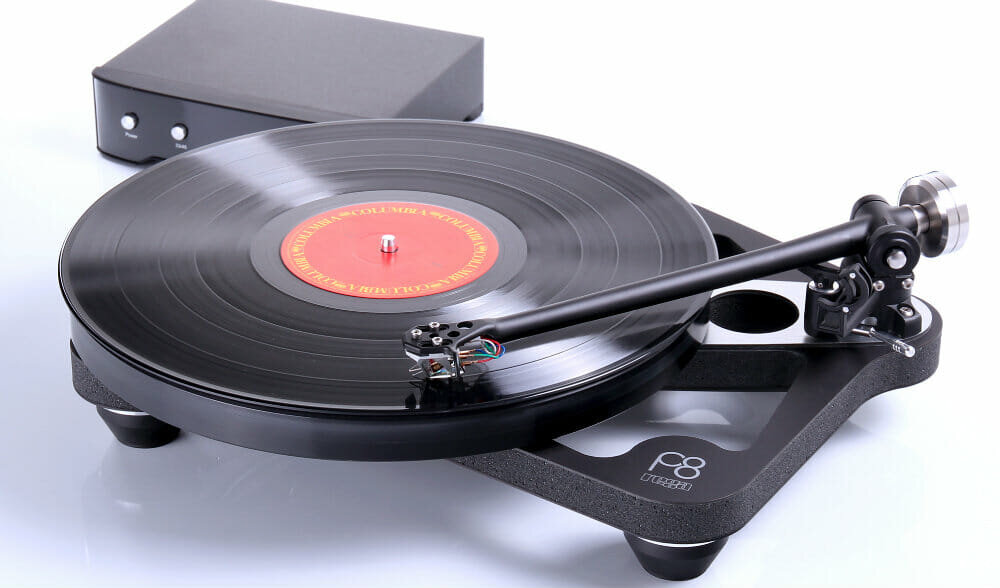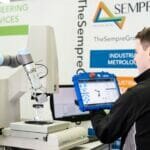Every day, across the globe, a precision engineered adhesive gasket manufactured by Milton Keynes based Lohmann Technologies is used to set records. Not just any records, but those preferred by afficionados of top end audio equipment made by Rega Research Ltd, a company which has established itself as one of the global leaders in high-tech superfine sound.
Rega Research Ltd can trace its manufacturing history in Essex back to 1973, when founding partner Roy Gandy worked full time at the nearby Ford motor plant. In the evenings he pursued his passion for premium quality performance from the hi-fi systems which he designed and made for himself, and over time the business has grown: it now has a worldwide network of distributors serving discerning hi-fi users in almost every corner of the globe. The company currently employs 130 people at its Southend-on-Sea premises, designing and making premium-quality award winning turntables, loudspeakers, amplifiers, tonearms, CD players and a wide range of accessories.
When designing one of its most popular turntables the design team needed to join the top and bottom brace for the turntable to the plinth, a key element of the design. It improves sonic performance by stiffening the relationship between the main bearing (upon which the platter and record sit) and the Tonearm which has the cartridge fitted that contacts the groove in the vinyl record. The Rega design brief called for a permanent joint that was as light as possible. Additionally, the accompanying production brief needed a solution that could be installed simply and swiftly without the need for any specialist equipment on the shop floor, with the exception of a small clamp that is used to effectively activate the adhesive.
Discussion had quickly turned to the subject of bonding, as a first review revealed the need to discount mechanical fasteners on the grounds of weight and the associated costs involved with longer assembly time, the potential need for pre-drilling of holes, plus the necessary tools that would have to be used during both the preparation and installation process. So further detailed discussions focused on bonding, but ruled out the use of liquid adhesive, once more on grounds including the need for associated application equipment: also it can be messy and would require masking, together with potentially extended curing times. UV bonding was examined and found appealing but would also require the use of additional equipment for curing.
It was at this point that Tony Glover, a bonding engineer at Lohmann Technologies, suggested that the design team consider using a thin-section double sided structural adhesive tape, supplied as a precision die-cut. REGA’s Design Co-Ordinator Colin Dilliway recalls “We were pretty much convinced by then that some form of bonding would deliver what we really needed” he says. “And a key element of the design process involved the needs of our production colleagues tasked with making the new turntable. In short, it wasn’t simply a case of the best design solution winning through – the method we sought also needed to be easily embraced by the assembly engineering team”. As a result, the REGA design was finalised using Lohmann’s DuploCOLL 370 double sided tape to join the top and bottom parts of the brace, with the gaskets supplied as ready-to-use precision die cuts from Lohmann’s Milton Keynes facility.
Lohmann’s DuploCOLL 370 is a pressure sensitive double-sided adhesive tape. Tony Glover explains “It can be supplied with an overall thickness of just 0.31mm and delivers tensile and shear strength performance significantly in excess of that required by REGA for this project. DuploCOLL 370 is superlight in weight and allowed us to provide REGA with a full-strength bond for the lifetime of its turntable. Critically for them in this application, no additional equipment was necessary on the production line, and no specialist training was required for assembly staff. The fact that Lohmann supplied the precision die-cuts ready-to-fit was another major advantage to our customer”. DuploCOLL 370 is stated by Lohmann to perform across a wide temperature range, from -40° Celsius to +80° Celsius. Further, it is Certified to DIN EN 1939 Standard for use with a variety of popular modern engineering materials including polypropylene, polyethylene, PTFE, hard PVC, glass, steels and ABS.






